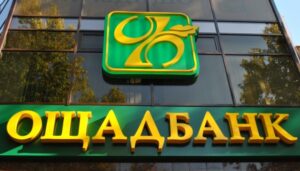
Metinvest Group’s Central, Ingulets and Northern Mining and Processing Plants (MPPs), which were transformed into United Mining and Processing Plant (UMPP), paid UAH 2.8 billion in taxes in January-June 2024.
According to the company’s press release on Thursday, in the same period of 2023, YuGOK, Central GOK and InGOK transferred UAH 1.4 billion to the state and municipal budgets.
“Despite the ongoing war, economic difficulties and challenges, Metinvest’s Kryvyi Rih enterprises remain one of the largest taxpayers and a strong pillar of the region and Ukraine,” the company said.
It is specified that in the first half of 2024, the main sources of budget revenues from Northern GOK, Central GOK and InGOK were the subsoil use tax – UAH 1.7 billion. The treasury also received a single social contribution of almost UAH 357 million and personal income tax of UAH 318 million. The list of the largest contributions includes land fees and environmental tax.
According to the press release, Kryvyi Rih enterprises remain the largest employer in the region. In addition, the GOKs continue to support Kryvyi Rih and the community by implementing joint humanitarian, educational and infrastructure projects.
As a reminder, in the first half of 2024, Metinvest Group increased its tax payments to the Ukrainian budget by one and a half times, to UAH 10 billion.
As reported, Metinvest is implementing a new model for the operation of Kryvyi Rih mining enterprises, uniting mining and processing plants in Kryvyi Rih under one management.
“Given the current challenges, with no objective way to bring the workload of the GOKs to the optimal level, we are looking for the effect of combining their capabilities and business processes. To this end, the company sees its GOKs not as separate facilities with separate teams, but as one large production site and one large team, and tries to use the advantages of each GOK in a single technological chain. The creation of a single administrative and management center, so to speak, a consolidated GOK, will significantly simplify, speed up and increase the efficiency of these processes, as well as contribute to the creation of new synergies between the enterprises,” explained Yuriy Ryzhenkov, CEO of Metinvest, earlier.
In 2023, Metinvest’s Kryvyi Rih enterprises paid a total of UAH 4.6 billion in taxes and fees to the budgets of all levels.
“Metinvest comprises mining and metallurgical enterprises located in Ukraine, Europe and the United States. Its major shareholders are SCM Group (71.24%) and Smart Holding (23.76%), which jointly manage it.
Metinvest Holding LLC is the management company of Metinvest Group.

Metinvest Mining and Metallurgical Group, including its associates and joint ventures, increased its payments of taxes and fees to the budgets of all levels in Ukraine by 56% year-on-year to UAH 9.9 billion in January-June this year.
According to the company’s press release on Monday, the largest payment is the subsoil use fee, which more than tripled to UAH 2.9 billion in the first half of 2023. The second largest payment was the unified social tax of UAH 1.8 billion, up 19%. The top three largest payments were made in the form of UAH 1.7 billion in personal income tax, up 16% year-on-year.
At the same time, Metinvest’s Ukrainian enterprises paid UAH 1.4 billion in corporate income tax in January-June 2024, up 26% compared to January-June 2023. Land payments increased by 7% to UAH 631 million and environmental tax by 22% to UAH 368 million.
Yuriy Ryzhenkov, CEO of Metinvest, stated that the group has overcome many challenges during the war, but many challenges are still ahead.
“Our efforts to rebuild our business to operate in the new environment and our ability to turn problems into opportunities have paid off – tax payments are growing. This is our contribution to supporting the economy of Ukraine and the regions near the frontline where the company’s enterprises operate. We allocate significant resources to help the army and civilians, continue to make plans for a peaceful future and are ready to participate in the post-war revival of the country,” the top manager emphasized.
As reported earlier, Metinvest almost doubled its tax payments to the Ukrainian budget in the first quarter of 2024 to UAH 4.2 billion. In 2023, the company paid UAH 14.6 billion to the Ukrainian budget.
“Metinvest is a vertically integrated group of steel and mining companies. The Group’s enterprises are mainly located in Donetsk, Luhansk, Zaporizhzhia and Dnipro regions.
The main shareholders of the holding are SCM Group (71.24%) and Smart Holding (23.76%), which jointly manage it.
Metinvest Holding LLC is the management company of Metinvest Group.

State-owned Oschadbank (Kyiv) has so far paid UAH 4.2 billion in income tax and UAH 0.7 billion in dividends to the budget based on the results of its operations in 2023 and plans to make another final payment of UAH 1.1 billion, the Oschadbank press service said at the request of Interfax-Ukraine on Wednesday.
“The budget will receive a total of UAH 6 billion from income tax and dividends, UAH 0.5 billion is taken into account in the calculations for previous periods,” the press service of the financial institution noted.
According to the finalized financial results, the bank earned UAH 6 billion in net profit last year, which, according to the bank, is the second highest figure in the market after PrivatBank.
As of March 1, 2024, Oschad ranked second in terms of total assets (UAH 376.4 billion) among 63 banks in the country.

Detectives of the Bureau of Economic Security (BES) are investigating the fact of tax evasion of more than UAH 1 billion by a well-known organizer of online gambling, the bureau said in a statement on Tuesday.
“The investigation has established that the company paid out UAH 4.5 billion in winnings to players, of which it failed to pay personal income tax and military duty totaling UAH 1.1 billion. These payments were recorded not as winnings, but as refunds, i.e. deposits, to individuals that were allegedly not used in gambling,” law enforcement officials say.
The BES does not disclose the name of the gambling organizer, but according to Interfax-Ukraine, it is the Cosmolot online casino, whose co-owner Arnulf Damerau recently told the Financial Times that allegedly corrupt officials in Ukraine’s law enforcement agencies and the presidential administration are trying to extort tens of millions of euros from him.
The BES adds that more than 5 million banking transactions are being analyzed, and the amount of damage caused to the state is confirmed, among other things, by the materials of the documentary audit of the State Tax Service.
“To ensure a comprehensive and complete investigation, detectives have already questioned the company’s employees, players and counterparties, conducted searches, sent numerous requests to banking and other institutions, and received a number of rulings on temporary access to things and documents,” the statement said.
According to the statement, as part of the criminal proceedings, the bank accounts of the company, which is still operating today, were seized, but the court ruling allowed it to make all necessary payments to the budget and pay wages.
“At the same time, at the time of the announcement of one of the rulings, the company’s officials transferred 100 million to the accounts of a counterparty, and these funds were subsequently arrested,” the release said.
The BES also states that the company’s officials have been obstructing the detectives in every possible way during the investigation, in particular, they have ignored the investigating judge’s decision to grant temporary access to documents, refused to provide information during interrogations, and concealed primary business documents.
“The pre-trial investigation is currently ongoing. The BES detectives continue to collect evidence that will be used both for forensic economic examination to confirm the amount of damage caused to the budget of Ukraine and to prove illegal activities,” the law enforcement officers said in a statement.

The amount of income tax and dividends for 2023 that state-owned PrivatBank (Kyiv) transferred to the state budget amounted to almost UAH 50 billion, Yulia Metzger, a member of the bank’s Supervisory Board, said at the International Financial Club BANKIR conference.
“Already in February this year, the Supervisory Board decided that the bank had transferred to the budget an advance payment of dividends and income tax based on the results of the previous year in the amount of almost UAH 50 billion,” she said.
According to the NBU, PrivatBank’s pre-tax profit for 2023 amounted to UAH 72.77 billion, and income tax expenses amounted to UAH 35 billion. According to the government’s decision, 80% (UAH 30.2 billion) of the remaining net profit of UAH 37.76 billion should be used to pay dividends.
As reported, on February 12, Privat transferred the amount of income tax and the first tranche of dividends for 2023 in the amount of UAH 26 billion to the state budget in advance.
PrivatBank is the largest bank in the country, with total assets of UAH 848.64 billion as of March 1, 2024, or 25.9% of the assets of all 63 banks.

Metinvest Mining and Metallurgical Group, including its associates and joint ventures, increased its payments of taxes and duties to the budgets of all levels in Ukraine by 1.7 times year-on-year to UAH 4.2 billion in January-March this year.
According to the company’s press release on Monday, the largest deductions include subsoil use fees, which increased 7.5 times year-on-year to UAH 1.3 billion compared to Q1 2023. The Group also increased its personal income tax payments by 22% to UAH 791 million. In addition, Metinvest transferred UAH 870 million of unified social tax to the budget, which is 20% higher than in Q1 2023.
At the same time, Metinvest’s Ukrainian enterprises paid UAH 407 million in income tax in January-March 2024. Land payments increased by 8% year-on-year to UAH 312 million, and environmental tax by 34% to UAH 182 million.
Yuriy Ryzhenkov, CEO of Metinvest, noted that despite the war in Ukraine and many unfavorable business factors, the Group managed to achieve positive dynamics in payments.
“This is the result of our team’s efforts to improve efficiency in all areas and to adjust the company to the new environment. As the largest taxpayer in the industry, we realize that the economy of the frontline regions and the entire country, as well as the ability to support the army and Ukrainians, depend on our stable operation. And we will do everything to continue to overcome all the challenges of wartime on the way to victory,” the top manager emphasized.
As reported, in 2023, Metinvest paid UAH 14.6 billion in taxes to the Ukrainian budget.
“Metinvest is a vertically integrated group of steel and mining companies. The Group’s enterprises are mainly located in Donetsk, Luhansk, Zaporizhzhia and Dnipropetrovs’k regions.
The main shareholders of the holding are SCM Group (71.24%) and Smart Holding (23.76%), which jointly manage it.
Metinvest Holding LLC is the management company of Metinvest Group.